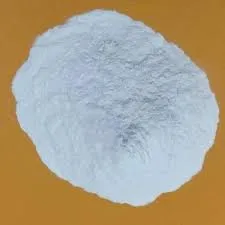
dec. . 28, 2024 12:44 Back to list
hydroxypropyl methylcellulose
Understanding Hydroxypropyl Methylcellulose A Versatile Polymer
Hydroxypropyl methylcellulose (HPMC) is a semi-synthetic polymer derived from cellulose, a natural polymer obtained from plant cell walls. It's a versatile compound widely used across various industries, including pharmaceuticals, food, construction, and personal care. This article delves into the properties, applications, and benefits of HPMC.
Chemical Properties and Structure
HPMC is produced by the chemical modification of cellulose through the introduction of hydroxypropyl and methyl groups. This modification enhances its solubility, making HPMC a key ingredient in both aqueous and organic solutions. The degree of substitution of the hydroxyl groups on the cellulose backbone determines the properties of HPMC, such as viscosity, solubility, and film-forming abilities. These characteristics enable HPMC to perform effectively in various formulations.
Applications in Pharmaceuticals
One of the primary applications of HPMC is in the pharmaceutical industry, where it serves multiple roles. Its ability to act as a thickener, binder, and film-former makes it ideal for tablet formulations. HPMC is also used as a matrix-forming agent in controlled-release drug delivery systems, providing a gradual release of medication over time. Furthermore, HPMC is utilized in ophthalmic preparations due to its high biocompatibility and ability to retain moisture, making it suitable for eye drops and gels.
HPMC in Food Products
In the food industry, HPMC is used as a food additive and is generally recognized as safe (GRAS) by the FDA. It acts as a thickening agent, stabilizer, and emulsifier, enhancing the texture and quality of various food products. Its ability to form a gel allows for the creation of gluten-free baked goods, catering to individuals with dietary restrictions. Additionally, HPMC can improve the suspension of ingredients in processed foods, ensuring uniform consistency and enhanced sensory attributes.
hydroxypropyl methylcellulose

Construction and Building Materials
HPMC plays a crucial role in construction, particularly in the production of cement-based products such as tiles, plasters, and adhesives. In this context, HPMC acts as a water-retaining agent, improving the workability and adhesion of these materials. Its properties help extend the setting time of mortars, allowing for better application and finishing. The presence of HPMC enhances the flowability and reduces the segregation of aggregates in cement mixtures, leading to stronger and more durable structures.
Personal Care and Cosmetics
In the realm of personal care products, HPMC is commonly used in cosmetics and toiletries. It functions as a thickening agent in lotions, creams, and gels, contributing to a pleasant texture and improved application. Moreover, HPMC is employed in hair care products as a conditioning agent, providing moisture and enhancing the overall feel of the hair. Its film-forming capabilities make it a popular choice for as a coating in hair styling products, providing hold and protection.
Environmental Considerations
As a cellulose derivative, HPMC is biodegradable, making it an environmentally friendly choice compared to many synthetic polymers. Its applications in various sectors align with increasing sustainability practices, promoting the use of naturally derived products. The shift towards eco-conscious innovation further establishes HPMC's significance in contemporary research and product development.
Conclusion
Hydroxypropyl methylcellulose is a multifaceted polymer that serves critical purposes across diverse sectors. From pharmaceuticals to food, construction, and personal care, its unique properties contribute to improved formulation performance, consumer experience, and sustainability. As industries continue to innovate and evolve, HPMC remains a pivotal ingredient, reflecting the growing interconnection between science, technology, and everyday life. Its versatility not only enhances product functionality but also aligns with the global movement towards environmentally responsible practices.
-
Versatile Hpmc Uses in Different Industries
NewsJun.19,2025
-
Redispersible Powder's Role in Enhancing Durability of Construction Products
NewsJun.19,2025
-
Hydroxyethyl Cellulose Applications Driving Green Industrial Processes
NewsJun.19,2025
-
Exploring Different Redispersible Polymer Powder
NewsJun.19,2025
-
Choosing the Right Mortar Bonding Agent
NewsJun.19,2025
-
Applications and Significance of China Hpmc in Modern Industries
NewsJun.19,2025







